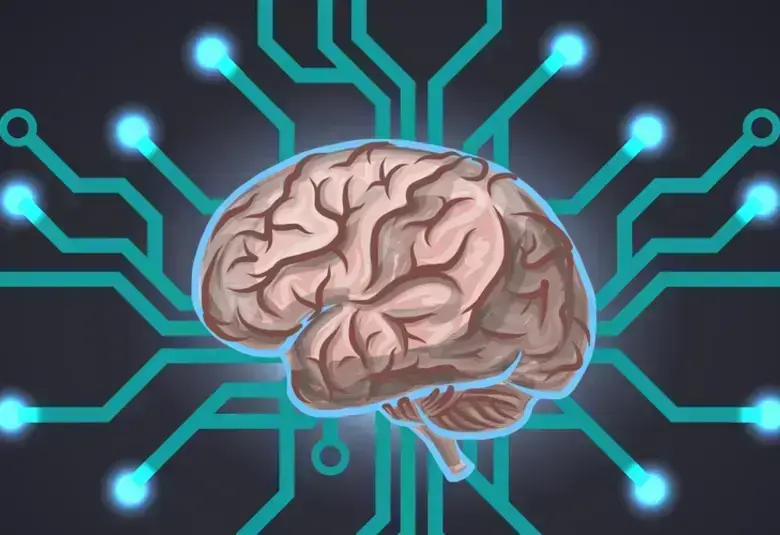Some evidence suggests that emotional blunting is a side effect of therapy, but other evidence indicates it is an unresolved feature of major depressive disorder, and hence a target for more effective treatment. Where do you stand on this important issue? The question was posed at ECNP 2019 during an Expert Science Exchange.
감정의 무뎌짐(emotional blunting)이 치료의 부작용임을 나타내는 일부 근거가 존재하는 반면, 아직 해결되지 않은 주요우울장애의 특징으로서 더 효과적인 치료 타깃으로 볼 수 있는 근거도 있습니다.
이 중요한 문제에 대해 어떤 입장을 지지하시겠습니까? 2019년 유럽정신약물학회(ECNP 2019)의 전문가 과학 교류(Expert Science Exchange) 세션에서 이 사안이 논의되었습니다.
Treatment of major depressive disorder (MDD) should aim for full functional recovery, and this requires improvement across all domains – cognitive, physical and emotional.1 That is now widely agreed, as is the need for well-tolerated medication essential to promote adherence and so minimize risk of incomplete response and relapse.
주요우울장애(MDD)의 치료는 완전한 기능 회복을 목표로 해야 하며, 이를 위해서는 인지, 신체, 감정 등 모든 영역에서 호전을 보여야 합니다.1 복약 순응도를 높여 불완전한 반응이나 재발 위험을 최소화하기 위해 내약성이 좋은 약제가 필수적이라는 인식과 마찬가지로, 의료계 전반에서는 위와 같은 내용에 동의하고 있습니다.
Unfortunately, emotional blunting – including feelings of detachment, loss of interest and pleasure -- is a common experience during drug treatment, being self-reported by between a third and a half of patients with MDD taking a wide range of antidepressant agents.2 It is also a frequent reason for patients stopping treatment. In a recent Canadian study of 316 people with MDD, 35% of those who discontinued their medication cited blunted emotion as a cause.3
그러나 안타깝게도 환자들은 약물 치료 과정에서 무심함, 흥미와 즐거운 감정의 상실과 같은 감정의 무뎌짐이라는 경험을 흔히 겪고 있으며, 다양한 항우울제를 복용하는 주요우울장애 환자 중 1/3에서 절반 가량이 이러한 증상을 겪고 있다고 스스로 밝히고 있습니다.2 이는 환자가 치료를 중단하는 주요 사유 중 하나이기도 합니다. 최근 MDD 환자 316명을 대상으로 진행한 캐나다의 한 연구에서는 약물 치료를 중단한 환자 중 35%가 감정의 무뎌짐을 이유로 꼽았습니다.3
In a recent study, 35% of people discontinuing medication cited blunted emotion
최근 연구에서는 약물 치료를 중단한 환자 중 35%가 감정의 무뎌짐을 이유로 꼽았습니다
Emotional blunting may have adverse effects on decision-making and relationships, and result in poor self-care and even thoughts of self harm in an effort to feel emotion.4 Emotional blunting can also be reflected in reduced sex drive and apathy. Any of these features may reduce quality of life.5 Their presence begs the question: is emotional blunting a consequence of the disease or of its treatment?
감정의 무뎌짐은 의사 결정과 인간 관계에 부정적 영향을 미칠 수 있으며, 결과적으로 자기 관리에 소홀해지거나 심지어 감정을 느끼기 위해 자해라는 방법을 떠올리게 되기도 합니다.4 또한 감정의 무뎌짐은 성욕 감퇴와 무감동으로 나타날 수도 있습니다. 이러한 현상은 모두 삶의 질을 떨어뜨릴 수 있습니다.5 해당 현상의 발생은 한 가지 질문으로 이어집니다. 과연 감정의 무뎌짐은 MDD의 결과일까요, 혹은 치료의 부작용일까요?
Emotional blunting as side-effect
부작용으로서의 감정의 무뎌짐
Among others, Guy Goodwin and colleagues from Oxford have drawn attention to the phenomenon of emotional numbing and reduced sensitivity that may appear in certain people treated for MDD. The fact that this can emerge even as depression itself remits suggests the phenomenon is not part of the clinical syndrome but a consequence of its treatment with antidepressant medication.5
여러 전문가 중 옥스퍼드대학교의 가이 굿윈(Guy Goodwin) 박사와 연구진은 MDD 치료를 받고 있는 환자 일부에게서 나타날 수 있는 감정의 멍해짐(numbing) 및 민감도(sensitivity) 저하 현상에 주목했습니다. 우울증 자체는 관해가 되었음에도 불구하고 감정의 무뎌짐이 발생할 수 있다는 사실을 고려할 때, 이 현상은 임상적 증상의 일환이 아니라 항우울제를 이용한 치료의 결과로 볼 수 있습니다.5
The case for emotional blunting being an effect of drug treatment was argued by Andrea Fagiolini (University of Siena Medical Center, Siena, Italy). This argument is strengthened, he maintained, by experimental evidence of reduced detection of negative facial emotion found in clinical and neuroimaging studies of healthy volunteers taking antidepressants for as little as a week.6,7 Importantly, this effect of medication on the perception of emotion is the reverse of that seen in clinical depression, which is associated with increased recognition of negative vs positive facial expressions.
이탈리아 시에나 시 소재 시에나대학교병원의 안드레아 파지올리니(Andrea Fagiolini) 교수는 감정의 무뎌짐을 약물 치료의 영향으로 볼 수 있는 근거를 주장했습니다. 파지올리니 교수는 이어서 임상 및 뇌 영상 촬영 시험에 참여한 건강한 지원자가 단 일주일간 항우울제를 복용한 결과 부정적 얼굴 표정을 감지해내는 정도가 줄어들었다는 실험적 증거가 이를 뒷받침한다고 말했습니다.6,7 여기서 중요한 점은 약물이 감정 지각에 미치는 영향이 임상 우울증에서 발견되는 양상과 반대라는 사실입니다. 임상 우울증은 긍정적 표정 인식 대비 부정적 표정 인식의 증가와 연관이 있습니다.
Since patients with clinical depression have an increased ability to recognize negative vs positive facial expressions (negative attentional bias) these data suggest that drug treatment reduces the ability to detect some negative stimuli.
임상 우울증 환자의 경우 긍정적 표정 대비 부정적 표정을 인식하는 능력이 증가하므로(부정적 주의 편중), 위의 데이터를 기초로 약물 치료가 부정적 자극 인식 능력을 감소시킨다고 볼 수 있습니다.
Medication-induced biases in emotion processing are the opposite of those seen in untreated MDD
그러므로 약물 치료에 따른 편중된 감정 처리는 MDD를 치료하지 않았을 때 나타나는 양상과 반대됩니다.
Moreover, there seems to be a brain correlate of the behavioral phenomenon induced by antidepressant treatment. In volunteers taking medication, the amygdala response to masked fearful faces was decreased.7 This contrasts with the increased amygdala response seen in people with MDD.
또한 항우울제 치료의 결과로 나타나는 행동 현상과 뇌가 상관성을 가지고 있는 것으로 보입니다. 약물을 투여한 지원자를 살펴보면 가면을 쓴 무서운 얼굴에 대한 편도체 반응이 줄어들었습니다.7 이는 동일한 상황에서 편도체 반응이 증가하는 MDD 환자와 반대되는 결과입니다.
Further support for the hypothesis that treatment can cause emotional blunting comes from data suggesting a dose-response effect, and evidence that emotional blunting can be resolved by lowering the dose of the medication used or its withdrawal.8
약물 치료가 감정의 무뎌짐을 초래한다는 가설을 뒷받침하는 또 다른 근거로는 용량-반응 효과를 나타내는 데이터, 그리고 약물 투여량을 줄이거나 투여를 중단함으로써 감정의 무뎌짐을 해결할 수 있다는 근거자료 등이 있습니다.8
Considering the pharmacology responsible for emotional blunting, Professor Fagiolini suggested the phenomenon may arise from serotonergic effects on the frontal lobes themselves or inhibitory serotonergic modulation of mid-brain dopamine systems which project to the prefrontal cortex.
파지올리니 교수는 감정의 무뎌짐과 관련된 약리학을 고려했을 때, 이 현상이 전두엽 자체에서 발생하는 세로토닌 효과, 또는 전전두 피질로 뻗어 있는 중뇌 도파민 시스템에 대한 억제성 세로토닌 조절로 인해 발생할 수 있다고 말했습니다.
Emotional dysfunction an unresolved part of MDD itself
MDD 자체의 해결되지 않은 부분으로서의 정서장애
The existence and adverse impact of emotional blunting were acknowledged by Roger McIntyre (University of Toronto, Toronto, Ontario, Canada) who noted that around 30% of people taking medication for MDD report some form of apathy. However, he contended that this may simply reflect the fact that antidepressant agents do not always effectively treat the emotional dysfunction component inherent in MDD.2
캐나다 온타리오 주 토론토 시 소재 토론토 대학교의 로저 매킨타이어(Roger McIntyr) 교수는 감정 무뎌짐의 발현 및 부정적 영향에 관해 논의했으며, 약물 치료를 받는 MDD 환자 중 약 30%가 무감동 증상을 보고한다고 말했습니다. 그러나 매킨타이어 교수는 이러한 현상이 단순히 항우울제가 MDD에 내재된 감정 장애를 늘 효과적으로 치료하는 것은 아니라는 사실을 보여주는 사례일 수도 있다고 주장했습니다.2
Association with medication does not mean causal connection
약물 치료와의 관련성이 곧 인과관계를 의미하는 것은 아닙니다
Evidence from close to 4,000 participants enrolled in the STAR*D study showed that low mood and loss of interest were major features of depression from the outset.9 Along with cognitive disturbance, depressed mood and experience of decreased reward accounted for half the impairment seen in psychosocial function.9
약 4,000명의 참여자를 대상으로 한 STAR*D 연구에서 얻은 증거에 따르면 저조한 기분과 흥미 상실은 처음부터 우울증의 주요 특징이었다는 점을 알 수 있습니다.9 인지 장애와 더불어 우울한 기분과 보상감 감소 경험이 심리사회적 기능 장애의 절반을 차지했습니다.9
Professor McIntyre also cited evidence that anhedonia is present in around 75% of people with MDD, is associated with poor prognosis and suboptimal treatment response, and may relate to disturbances of central dopaminergic, mesolimbic and mesocortical reward pathways.10-13
또한 매킨타이어 교수는 무쾌감증이 MDD 환자 약 75%에게서 나타나는 증상으로서 부정적 예후 및 불충분한 치료 반응과 관련이 있고, 중추 도파민계, 중변연계 및 중피질 보상 경로 장애와도 연관될 수 있다는 근거를 언급했습니다.10-13
While there is clinical trial evidence that antidepressant treatment improves emotional blunting present at baseline,2,14 resolution of this dimension of depression is often incomplete. There was consensus that achieving full functional recovery – in addition to resolving symptoms -- means targeting all components of depression and this applies to emotional dysfunction as much as to the cognitive and physical burden of MDD.
항우울제 치료가 기저 상태에서 존재하는 감정의 무뎌짐을 호전시킨다는 임상 시험 결과도 있지만,2,14 우울증의 이러한 측면은 완전히 해결되지 않는 경우가 많습니다. 증상 해결과 더불어 기능을 완전히 회복하려면 우울증의 모든 요소를 대상으로 해야 하며, MDD의 인지 및 신체 증상뿐만 아니라 감정 장애도 여기에 해당된다는 점에 공감대가 형성되었습니다.
본 자료는 Global Lundbeck 의학부에서 선별한 콘텐츠이며, 한국룬드벡의 의견과 다를 수 있습니다




